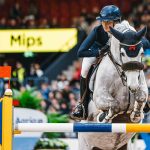FieldTurf has filed suit in the United States District Court for the Eastern District of Pennsylvania in Philadelphia against Sprinturf for falsely disseminating information concerning Staphylococcus Aureus “staph” bacteria in artificial turf.
The suit is a result of Sprinturf's Spring 2006 press release which claimed that it was no longer selling turf with sand and rubber infill because it had commissioned a lab report which allegedly had concluded that sand and rubber infill carried a risk of staph infection. FieldTurf strongly suspected there was no such report, and recent studies confirm that artificial turf is not a breeding ground for these microbes and no staph bacteria was found in any of the artificial surfaces tested (see Note).
When Sprinturf refused to let FieldTurf see the alleged lab report, FieldTurf went to Court in Philadelphia and obtained an Order which required Sprinturf to turn over the report. Sprinturf produced what they claimed was a complete copy of the lab report, but that turned out to be untrue.
Shortly after receiving the document from Sprinturf, pursuant to the Court Order, FieldTurf obtained a copy of the lab report from a third party. Review of that copy of the report included additional information, which suggested that Sprinturf had violated the Court's Order by removing that information from the report, before it was given to FieldTurf. FieldTurf went back to Court and the Court found that Sprinturf had violated the prior Order, and further ordered Sprinturf to produce a complete copy of the report, without taking anything out.
After FieldTurf went back to Court and got a second Order, Sprinturf finally produced a complete copy of the report. As FieldTurf expected, the lab report said absolutely nothing about staph bacteria, staph infection or any health risk of any kind whatsoever. When Sprinturf refused to stop spreading the bogus statements about staph, FieldTurf filed suit (Civil Action No. 06-CV-02515). FieldTurf is asking the Court to order Sprinturf to issue a retraction and to stop making false statements about staph. FieldTurf is still assessing the full extent of damage that these falsehoods may have caused. Along with this claim in the suit, FieldTurf also filed claims against Sprinturf for deceptive trade practices under the Lanham Act.
FieldTurf's complaint also included details about a supposed MBA Marketing Program offered by Sprinturf. In the spring of 2005, Sprinturf announced, with much fanfare, the creation of a marketing relationship with new customers, promising to give a 50 per cent rebate. In the end, Sprinturf reneged, failed or refused to give many of the promised rebates.
“Sprinturf's previous attempt to attack FieldTurf in the Philadelphia courts recently ended very badly for Sprinturf,” said FieldTurf CEO John Gilman.
During 2004, Sprinturf filed a lawsuit against FieldTurf, in the same Federal District Court (Civil Action No. 2:04-CV-00989). By August 2006, Sprinturf apparently realized that its own claims had no merit and asked the Court to dismiss its own lawsuit. The Court allowed Sprinturf to drop the baseless case, and ordered that punitive measures will result if Sprinturf ever files another suit against FieldTurf based on the same claims.















